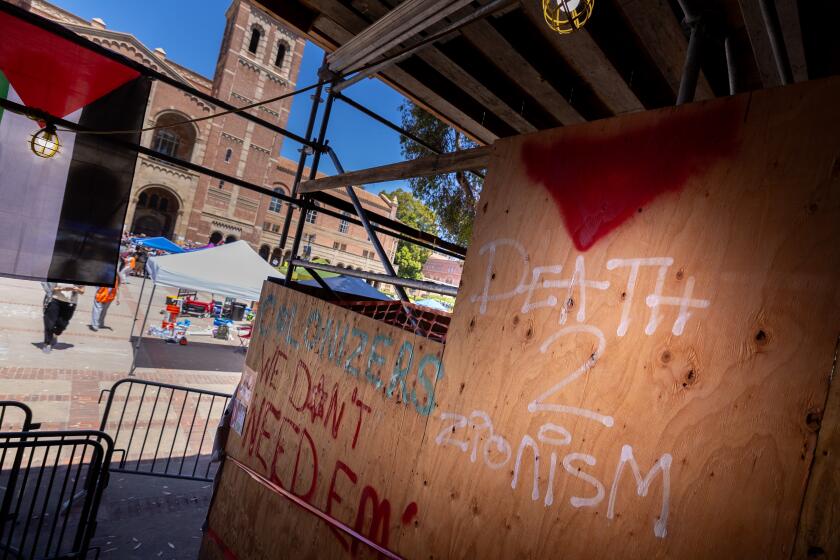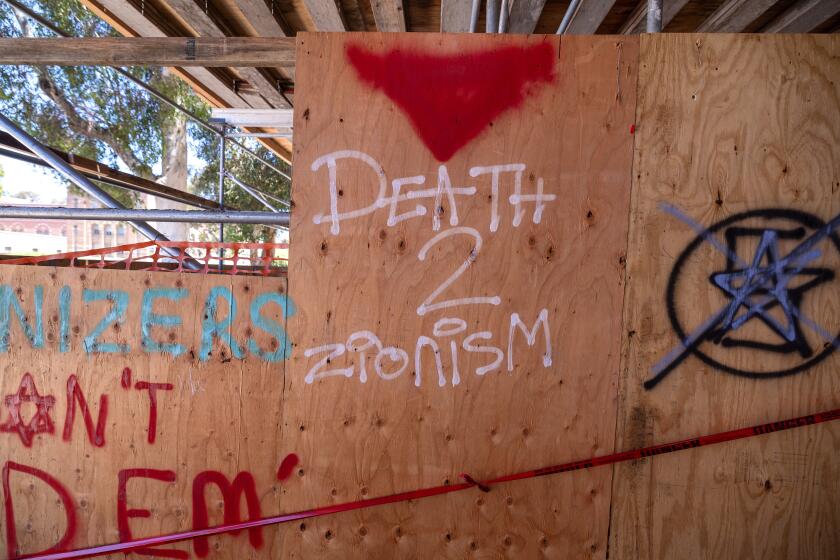
- Share via
WASHINGTON — The Israel-Hamas war has thrust Israel and Palestinians back on the front burner of United States policy, and abruptly injected some long-standing divisive issues into the 2024 presidential race.
Both President Biden and former President Trump express baseline support for Israel, but they diverge significantly on a two-state solution, settlements and other key questions.
Here’s a comparison of their positions and track records:
Israel
Biden has generally continued what had for decades been a bipartisan approach to Israel: strong support but always with varying degrees of inclusion and assistance for the Palestinians.
The president has used U.S. power on occasion to attempt to influence Israeli behavior, such as in its conduct of the current war or in resisting controversial changes to Israel’s judiciary, which many saw as undemocratic.
He has not gone as far as President Obama, for example, who insisted Israel freeze construction of settlements in areas claimed by the Palestinians.
But when push comes to shove, Biden has sided with Israel, declining to significantly hold back military aid and vetoing United Nations measures opposed by Israel, including a recent one to formally recognize a Palestinian state.
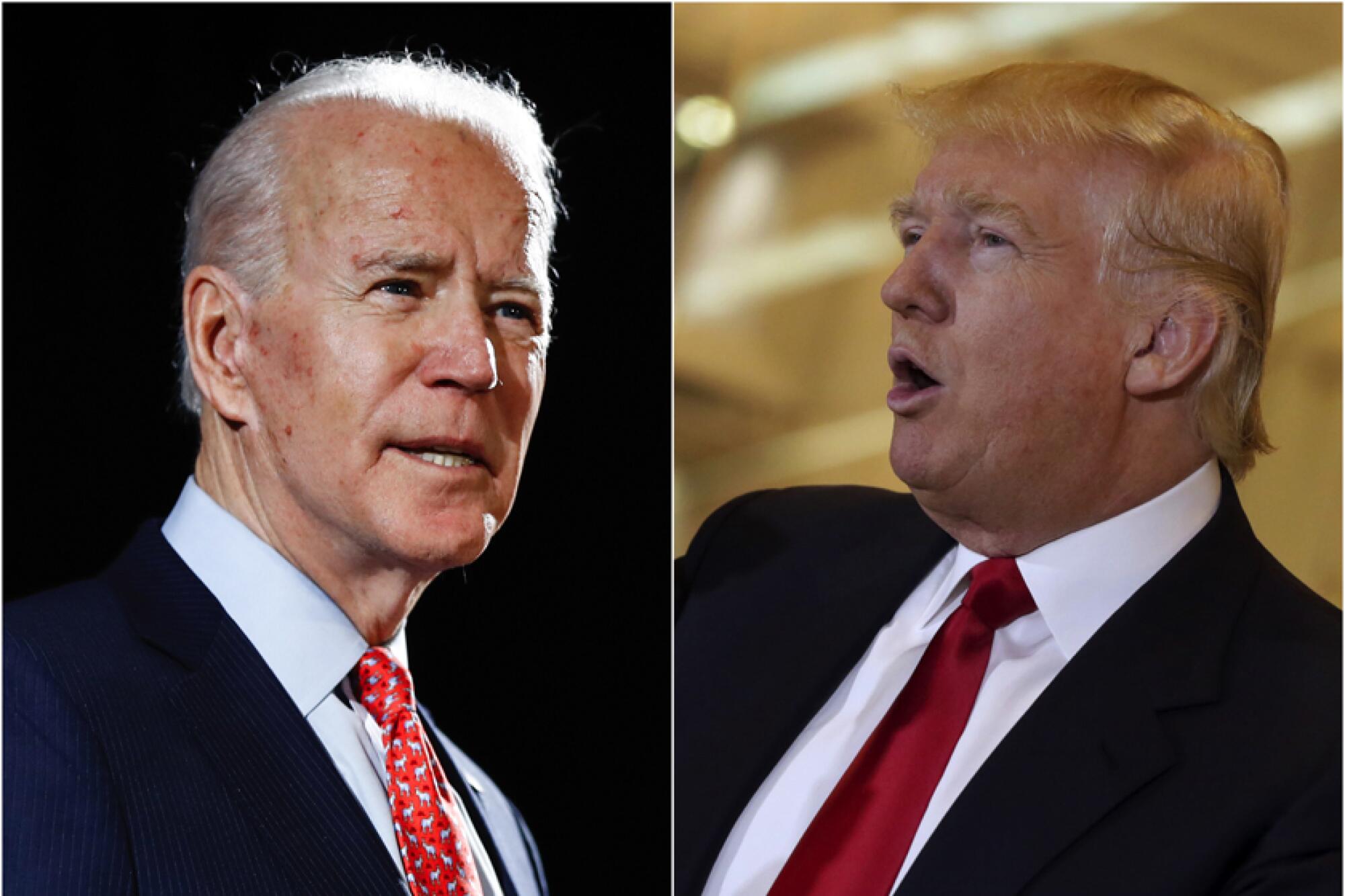
Even so, Biden — like most past U.S. leaders — has sought to maintain some balance and support for Palestinians and to present the United States as a potential mediator in the Israeli-Palestinian conflict.
By contrast, Trump was the first U.S. chief executive who gave near-absolute, unconditional support to Israel, handing the government of Prime Minister Benjamin Netanyahu everything it asked for and then some.
Trump moved the U.S. Embassy from Tel Aviv to the disputed capital of Jerusalem, the first major country to do so. He also endorsed Israeli control of the Golan Heights, a contested fertile plateau that Israel seized from Syria in the 1967 Middle East war. He did so without concessions from Israel.
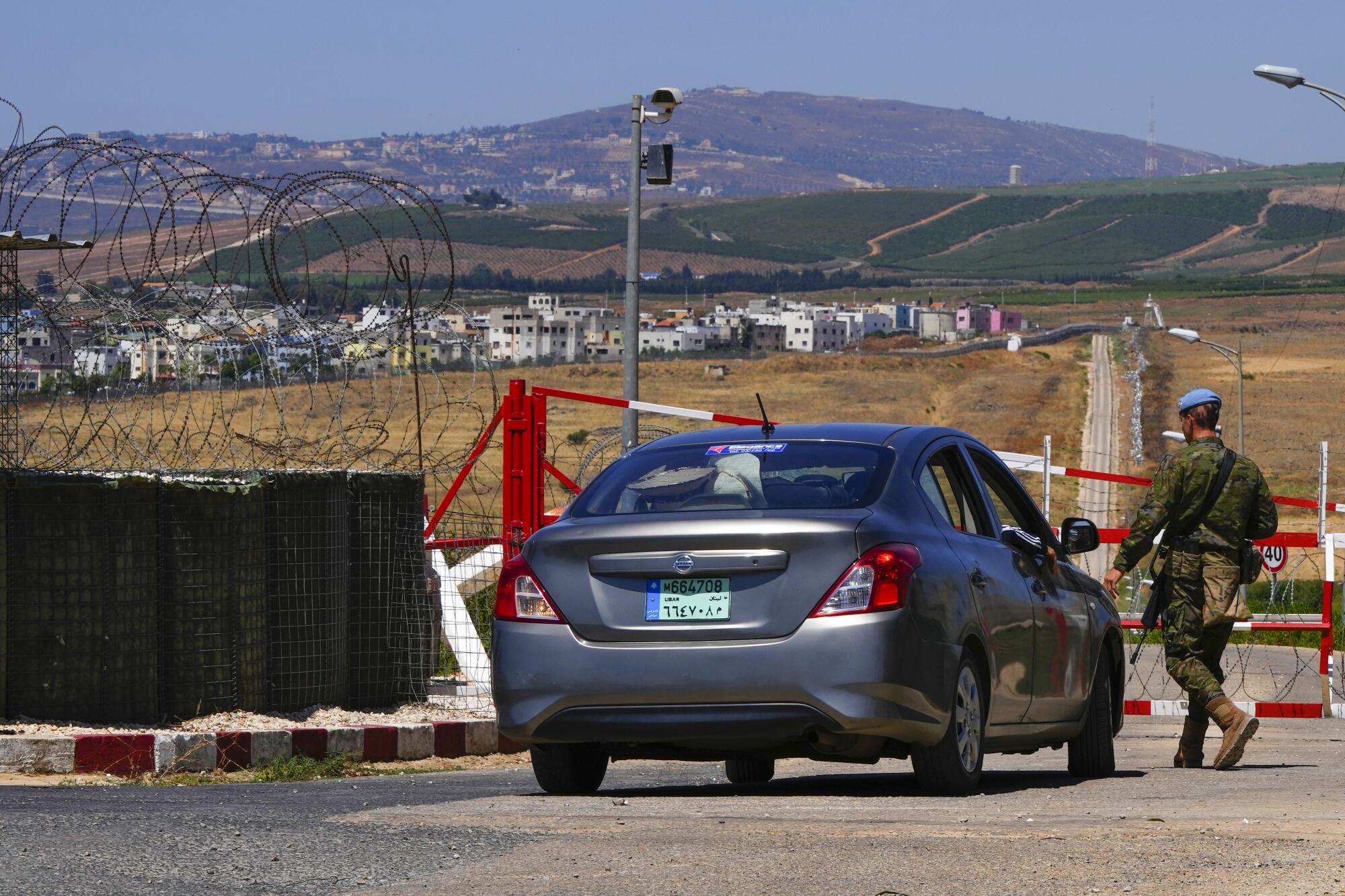
Trump was so popular among right-wing Israelis that Netanyahu used him as he campaigned for reelection, adorning cities across Israel with huge posters of the two men together. A Jewish settlement in the West Bank named itself after Trump.
Trump’s one-sided approach won him praise from some pro-Israel advocates, but critics say he also sacrificed valuable U.S. leverage in negotiating broader peace in the region.
Israel-Hamas war
Biden voiced U.S. support for Israel and its right to self-defense after the Oct. 7 Hamas attack that left nearly 1,200 Israelis and others dead.
“The United States stands with the people of Israel in the face of these terrorist assaults — [U.S. support] is rock solid and unwavering,” Biden said from the White House, within hours of the attacks and before traveling to Tel Aviv to stand by Netanyahu. “Israel has the right to defend itself and its people, full stop.”
Biden nevertheless has advised the Israeli government to show more restraint in its attacks on Palestinians in Gaza to minimize civilian casualties and to rein in vigilante violence against Palestinians in the West Bank.
At UCLA, the legacy of the encampment remains an issue of much debate, particularly among Jewish students.
With mounting international condemnation over an Israeli military response that has left more than 37,000 Palestinians dead, critics say that the Biden administration hasn’t done enough to restrain Israel. The president recently stepped up pressure for an immediate cease-fire and unveiled a plan that would free hostages and bring about a final end to the war.
By contrast, Trump hasn’t expressed concern for Palestinian casualties. He has urged Israel to “get the job done” to destroy Hamas. “You have to finish up your war,” Trump told the right-wing Israeli newspaper Israel Hayom in late March. “You gotta get it done.”
Trump accused Biden of “abandoning” Israel when the administration briefly suspended the shipment of 2,000-pound bombs to Israel as Israel threatened to move into the southern Gazan city of Rafah.
Trump criticized Israel for “losing the PR battle” by allowing images of the war in Gaza to be disseminated. He did not explain how Israel could prevent that.
Palestinian statehood
Biden supports an independent Palestinian state alongside Israel, an idea that remains dominant in the international community’s position toward the region.
“As we look to the future, the only real solution to the situation is a two-state solution over time,” Biden said in his State of the Union address this year. “There is no other path that guarantees Israel’s security and democracy. There is no other path that guarantees ... that Palestinians can live in peace [with] dignity.”
Protesters on both sides of the Israel-Hamas war use the word in diametrically opposed ways. What are the origins of the term?
Trump has been dismissive of the aspiration of a Palestinian state, although on occasion he has not discounted it completely. He shut down the de facto Palestinian Embassy in Washington and generally refused to meet with Palestinian leaders as president.
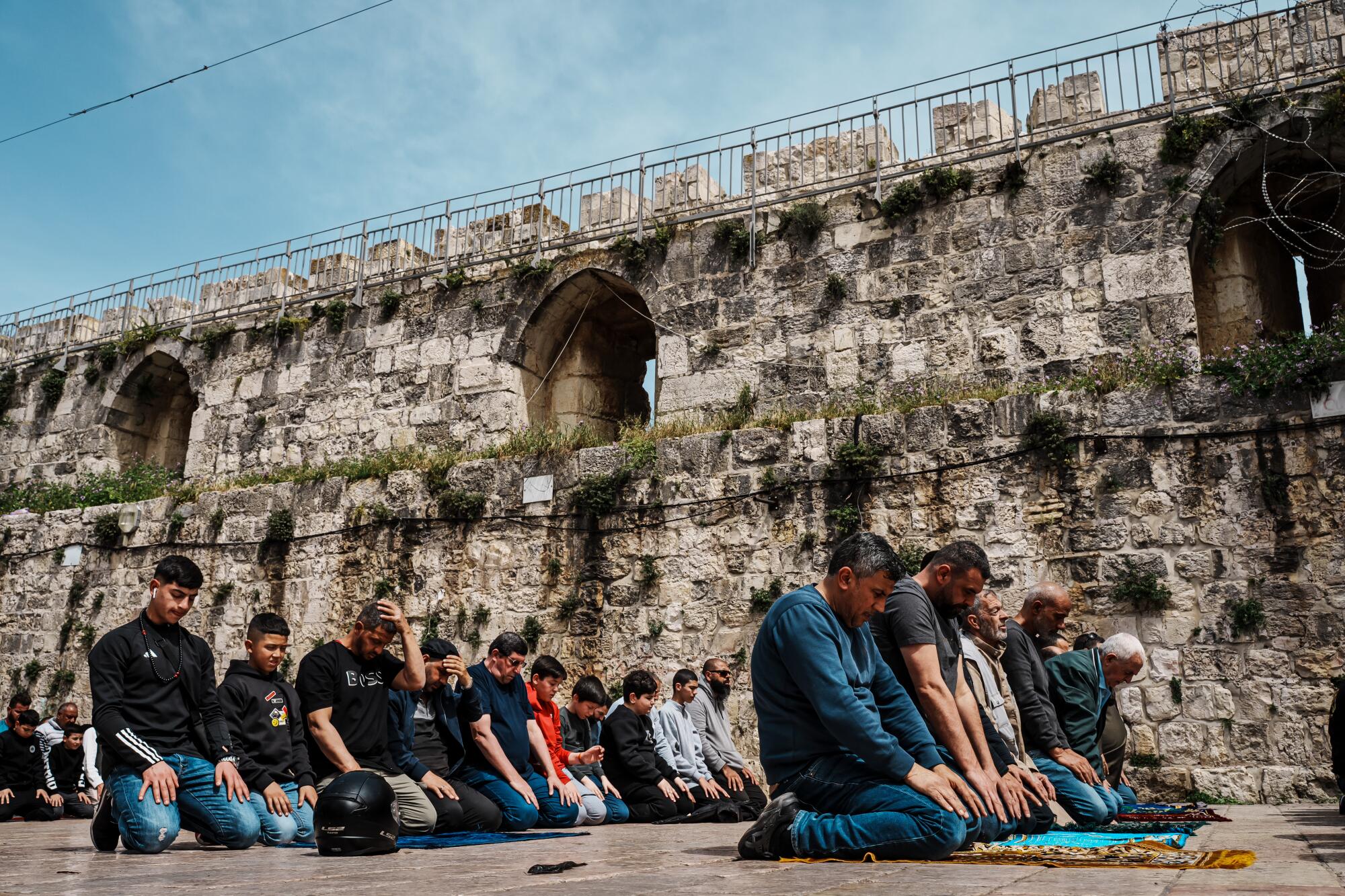
Most importantly, Trump’s decision to move the U.S. Embassy to Jerusalem reversed decades of U.S. and international policy that held that ultimate designation of the capital of Israel would be determined in a final peace agreement. Palestinians also claim parts of Jerusalem as their capital.
Biden has not reversed the Trump move, leaving the embassy in Jerusalem, nor has he made good on a promise to reopen the U.S. Consulate in East Jerusalem, which historically had served Palestinians and was closed by Trump.
Gaza’s future?
Biden has been adamant that any future arrangement for the Gaza Strip leave it intact and in Palestinian hands.
Trump has not pronounced one way or the other. But he has previously been receptive to plans floated by Israel to annex Gaza and even the West Bank.
Trump’s son-in-law, Jared Kushner, who served as the then-president’s point man for the Middle East, voiced some ideas.
He told an interviewer he believed the best option in the conflict was to “bulldoze something in the Negev,” the desert in southern Israel that borders Egypt, and move Palestinians there so that Israel forces could “finish the job” in Gaza. Kushner made the comments to the Middle East Initiative, a program at Harvard University.
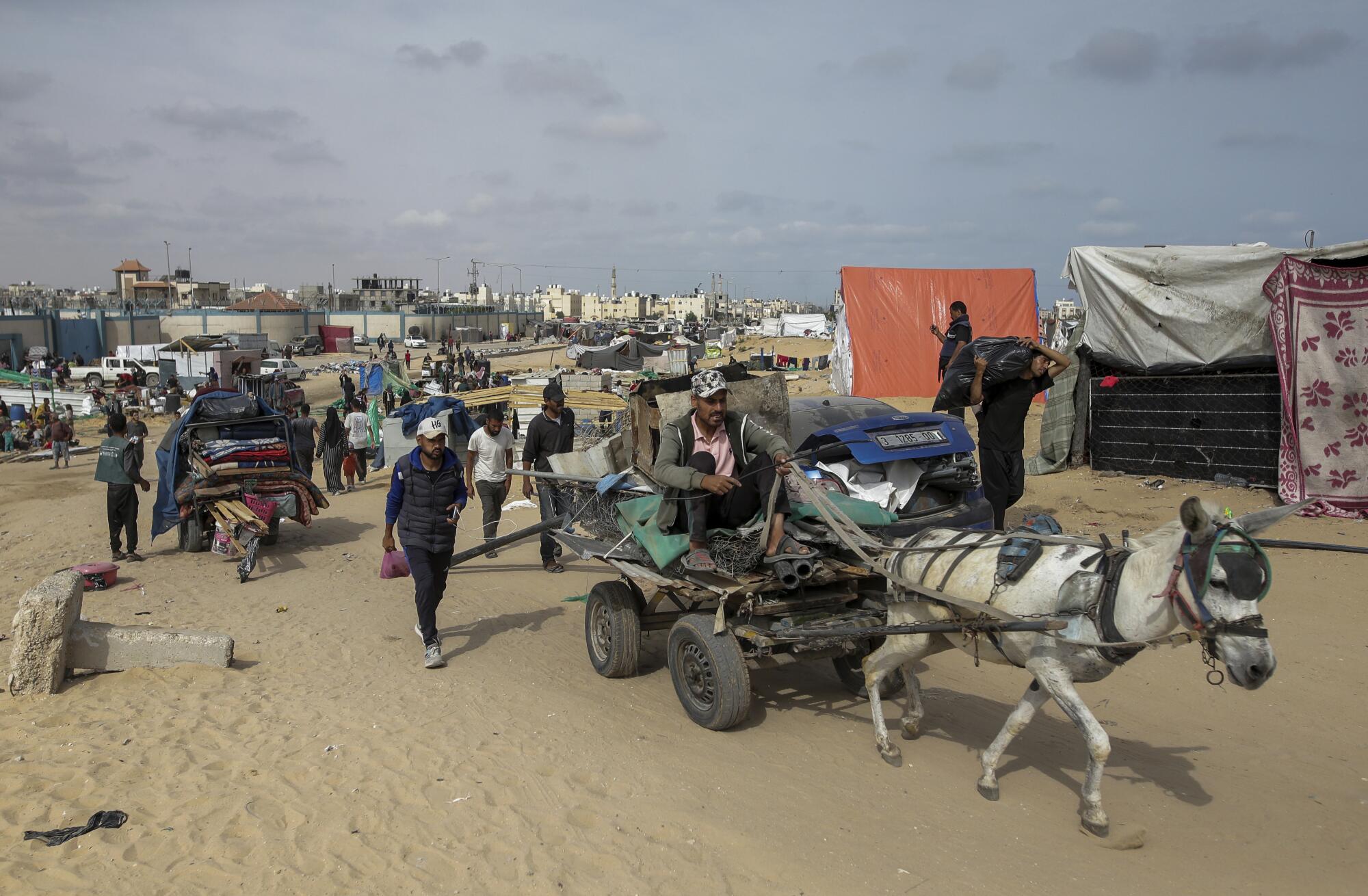
Kushner added that Gaza’s “waterfront property” could be “very valuable” and said that allowing Palestinians to have a state was a “super bad idea.” It is not clear what if any role he would have in a possible future Trump administration or whether his views reflect those of his father-in-law.
Settlements
The Biden administration has revived long-standing U.S. policy that the Jewish settlements Israel erects in the West Bank are an impediment to peace. Most of the world goes a step further, saying they are illegal. Still, Israel continues to build them, despite protests from the State Department.
The administration in December did take the unusual measure of sanctioning a small number of Israeli settlers deemed responsible for deadly attacks on Palestinians in the West Bank. Settlers have seized Palestinian land, destroyed their olive tree orchards and burned their homes.
Trump took no steps as president to rein in settlements; his administration moved to legitimize them.
Trump Secretary of State Michael R. Pompeo said in 2019 that contrary to decades of U.S. policy, the Jewish settlements built in the West Bank and other territory claimed by the Palestinians were “not inconsistent with international law.”
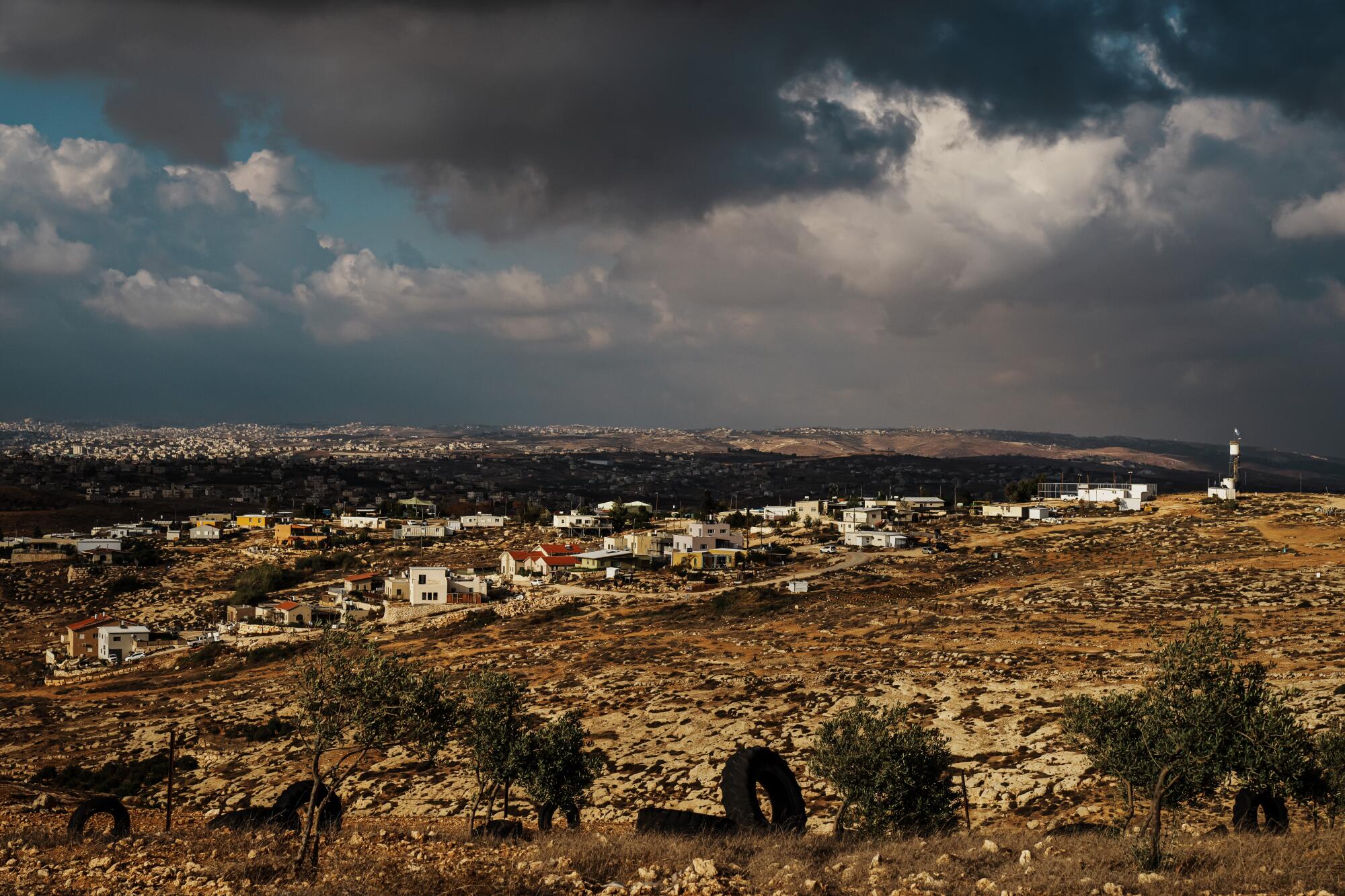
Democratic and Republican administrations had until then considered settlements at the minimum “unhelpful” to a peaceful resolution of the Israeli-Palestinian conflict and in some cases illegal.
On this issue, the Biden administration reversed Trump’s policy, returning to the traditional — if vague — U.S. description of settlements as problematic and unhelpful, while declining to explicitly call them illegal.
A security guard is injured in the attack, which comes amid heightened fears of a wider war between Lebanon and Israel.
Approach to Arab nations
Biden has formed an alliance with several Arab countries to confront the Gaza war and to negotiate with Hamas.
He is also seeking to build on efforts by Trump to establish a coalition of Arab states that recognize Israel as a way to promote better regional integration.
But Biden is resisting some of the demands the countries have in order to recognize Israel. The biggest prize is regional superpower Saudi Arabia, which is conditioning its agreement on help with a nuclear power program and establishment of a NATO-like mutual-defense security pact.
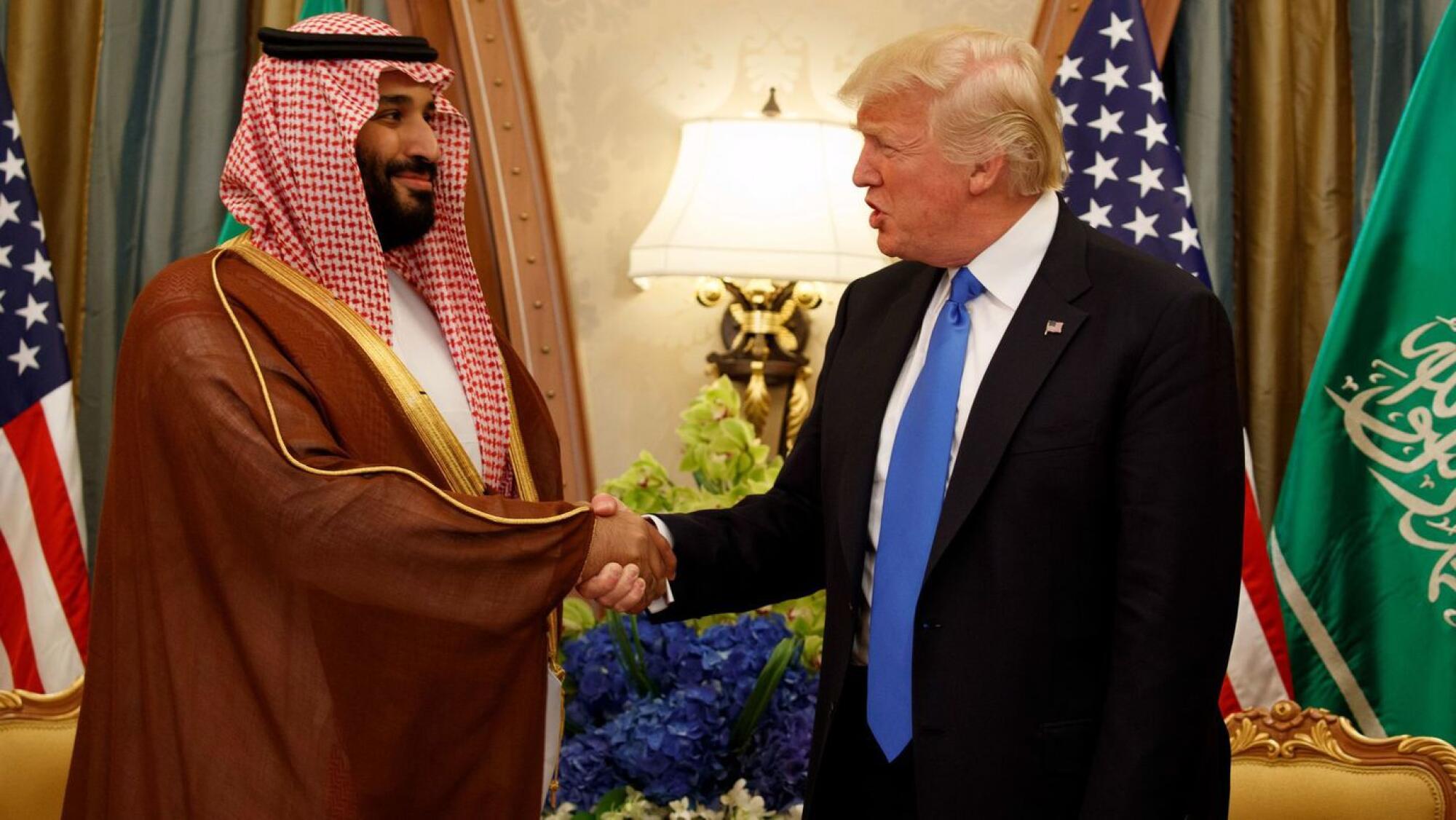
From his first days in office, Trump aggressively courted Saudi Arabia’s wealthy leaders, making a trip to the desert kingdom the first of his administration. (Usually presidents make the first trip to an established ally.)
To foster closer ties with Saudi Arabia, Trump showed a willingness to overlook the human rights record of Crown Prince Mohammed bin Salman, including the 2018 government-ordered murder of journalist Jamal Khashoggi.
Trump’s crowning achievement was the so-called Abraham Accords, wherein two Gulf states, the United Arab Emirates and Bahrain, for the first time recognized Israel and opened diplomatic ties.
It was a breakthrough seen as the beginning of a possible new regional diplomatic order. Saudi Arabia did not join the detente but clearly endorsed it, allowing the UAE and Bahrain to act. That left Riyadh as the dangling carrot, which the Biden administration now pursues, and which Trump, if elected, would like to make a priority.
More to Read
Get the L.A. Times Politics newsletter
Deeply reported insights into legislation, politics and policy from Sacramento, Washington and beyond. In your inbox three times per week.
You may occasionally receive promotional content from the Los Angeles Times.
